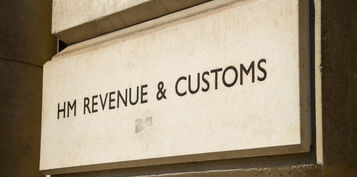Are you ready for VCT season?
David Prosser explores how VCTs can provide a tax-efficient option for investors.

Millions of people completing self-assessment tax returns ahead of the 31 January deadline will notice the section asking if they wish to claim additional tax reliefs. As we move into venture capital trust season, the form is a useful reminder of the tax efficiencies that VCTs offer.
A VCT is a special type of investment company, required to invest shareholders’ money in small, early-stage companies – broadly speaking, businesses worth less than £15m and with fewer than 250 employees, and which have a trading record no longer than seven years. These businesses have higher failure rates than more established companies, so the government offers tax incentives to encourage investors to back them through VCTs.
Not least, any income or profit that you make from a VCT is tax-free. In addition – and this is where you usually need to claim the incentive on your tax return – money put into new VCT shares comes with 30% upfront tax relief. That means investing £10,000 in a fund, say, will only cost you £7,000 once you’ve claimed the incentive through the self-assessment system. The only caveat here is that you must hold on to your VCT shares for at least five years or the relief becomes repayable.
“Any income or profit that you make from a VCT is tax-free. In addition – and this is where you usually need to claim the incentive on your tax return – money put into new VCT shares comes with 30% upfront tax relief. That means investing £10,000 in a fund, say, will only cost you £7,000 once you’ve claimed the incentive through the self-assessment system.”
David Prosser
Now, it’s important to recognise that investing simply to secure a tax break is never a good idea. Above all, it is the investment case for VCTs that you need to consider, particularly in the context of your existing portfolio of savings and investments.
Certainly, for investors who don’t currently have any exposure to the stock market, a VCT is unlikely to be a sensible first move into more risky assets. The businesses in which VCTs invest are, by their very nature, more prone to mishap than shares in large, quoted companies. Investing through a fund, where a professional manager picks the businesses and builds a spread of assets, will mitigate risk to some extent, but there is still the potential for setbacks.
On the other hand, for investors who already have a good spread of stock market investments – and are making full use of other tax-efficient vehicles such as individual savings accounts (ISAs) – VCTs could be a good option. Some portfolio businesses will likely fail, but the top performers will hopefully provide mitigation, plus the tax breaks effectively lower the bar for positive returns. Successful businesses today that started out with VCT backing range from the online estate agent Zoopla to food delivery company Gousto.
One particularly attractive feature of VCTs in 2024 could be the tax-free dividends that the funds often pay. While early-stage companies don’t typically generate much income, VCT managers tend to structure their funds to pay most returns in the form of dividends. In a year in which interest rates look set to fall back, that could prove to be very useful.
However, remember that it is only new VCT shares that deliver upfront income tax relief. While you can buy VCT shares on the second-hand market, with tax-free income and gains rights attached, you won’t be able to claim the 30% upfront relief on such investments.
To meet the demand for new shares, therefore, VCT manager launch new share issues for their funds each year – or even completely new funds. These launches ramp up in the final few months of the tax year, which ends on 5 April.
Right now, there are around 25 VCTs raising money according to Wealth Club, one platform that specialises in this area. However, don’t leave your decision until the last minute: VCT managers cap the amount they raise each year, because they don’t want to be left scrambling to invest too much cash in qualifying businesses. The most popular funds may therefore sell out well before 5 April.







